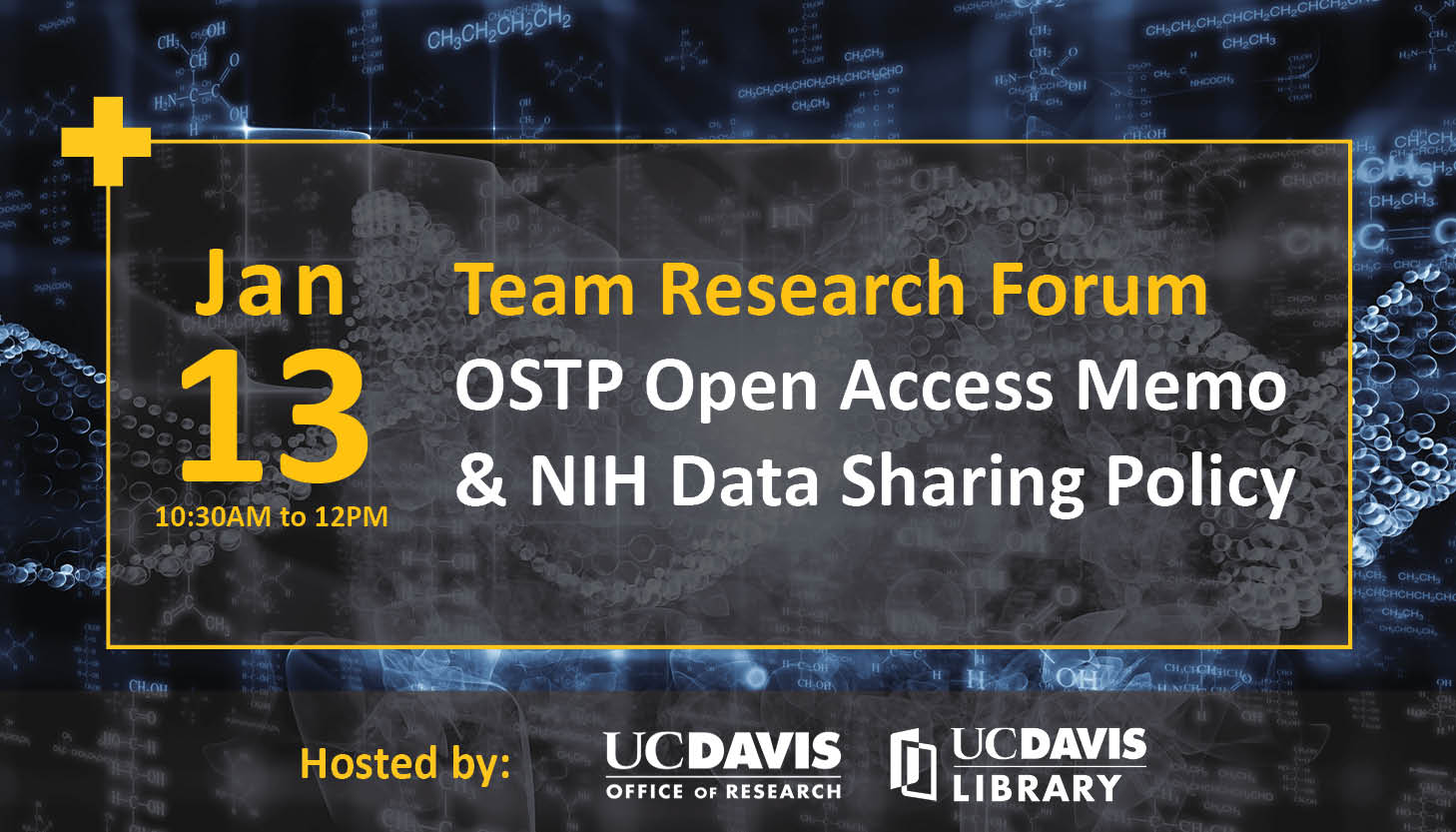Team Research Forum: OSTP Open Access Memo & NIH Data Sharing Policy
What you need to know about the OSTP Open Access Memo & NIH Data Sharing Policy
NIH has issued the final Data Management and Sharing (DMS) Policy (effective for due dates on/after January 25, 2023) to promote the sharing of scientific data. Under the DMS Policy, NIH expects investigators to submit a DMS plan for review when applying for funding. Awardees are expected to carry out data management and sharing as outlined in approved plans and as a term and condition of award.
Join the UC Davis Office of Research and the UC Davis Library at 10:30am on Friday, January 13th to hear from campus experts and learn about what resources are available on campus. We will also touch on the White House OSTP Guidance to Make Federally Funded Research Freely Available Without Delay.
View Recording
 Michael Ladisch
Michael Ladisch
Scholarly Communications Officer
Michael Ladisch is the scholarly communications officer and program lead at the UC Davis Library. He provides guidance and support to UC Davis’ researcher community on issues related to publishing (with focus on Open Access), copyright for teaching and research, and research impact. Michael is also the primary campus contact for the UC transformative open access agreements, the UC repository eScholarship, and the UC Publication Management System.
 Megan Van Noord
Megan Van Noord
Health Sciences Librarian
Megan works with the UC Davis research community through research consultation and collaboration to connect biomedical knowledge networks to each stage of the research lifecycle.
 Beth Tweedy
Beth Tweedy
STEM Librarian for Life Sciences
Beth supports researchers at UC Davis throughout their research process with personalized consultations across a broad range of research and data topics.
 Christy Navarro
Christy Navarro
CTSC Health Informatics Research Data Officer
Christy works with researchers and collaborates across UC Davis and UC Davis Health departments to help accelerate research with health equity data resources. Her position focuses on serving researchers by using effective methods for making health-equity data resources findable, accessible, interoperable and reusable – also known as FAIR.




